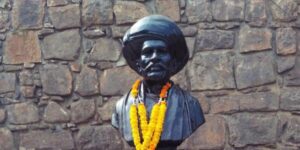In 1955, ten years after the U.S. dropped an atom bomb on Hiroshima (Japan), the Turkish poet Nâzim Hikmet wrote a poem in the voice of a seven-year-old girl who died in that terrible act. The poem was later translated into Japanese by Nobuyuki Nakamoto as ‘Shinda Onnanoko’ (‘Dead Girl’) and is frequently sung in commemorations of that atrocity. Given the harshness of war and the escalation of conflict in Ukraine, it is worthwhile to reflect once more on Hikmet’s beautiful, haunting lyrics:
I come and stand at every door
But no one hears my silent tread.
I knock and yet remain unseen
For I am dead, for I am dead.
I’m only seven, although I died
In Hiroshima long ago.
I’m seven now as I was then.
When children die, they do not grow.
My hair was scorched by swirling flame.
My eyes grew dim; my eyes grew blind.
Death came and turned my bones to dust
And that was scattered by the wind.
I need no fruit, I need no rice.
I need no sweets, nor even bread.
I ask for nothing for myself
For I am dead, for I am dead.
All that I ask is that for peace
You fight today, you fight today
So that the children of the world
May live and grow and laugh and play.
(Poem courtesy: “All That I Ask Is That You Fight For Peace Today”, by Vijay Prashad, editor and journalist, published by Tricontinental: Institute for Social Research. Tricontinental: Institute for Social Research is an international, movement-driven institution focused on stimulating intellectual debate that serves people’s aspirations.)




